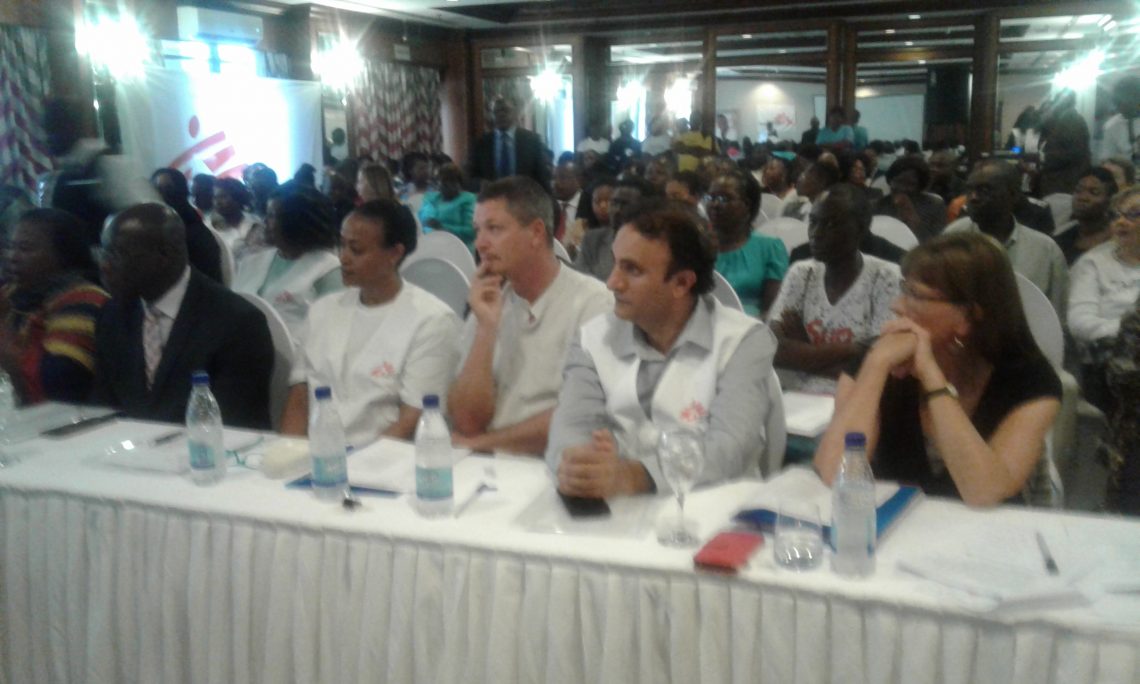By Joyce Mukucha
The Government of Zimbabwe has commended Medicins Sans Frontiers (MSF) for the great strides it has taken to support and provide quality mental health care in the country.
Mental health is a crisis in Zimbabwe and across the country. It is said 10 percent of the population experience a mental illness. In trying to support the mentally challenged, the organisation’s goal was to ensure that there was proper care in the communities with people who are mentally challenged and those in prisons.
The organisation provided mental health diagnoses and treatment, supported by its psychiatrists, psychologists and occupational therapists. It trained the Zimbabwe and Correctional Services (ZPCS) mental health services providers and empowered them with skills to manage prisoners with treatment instead of force but through consistent supply of appropriate medicines.
The Ministry of Health and Child Care expressed its gratitude for MSF support over the years.
Speaking during the presentation of MSF activities in Zimbabwe, Ministry of Health and Child Care Principal Director (Curative Services) Mr Sydney Makarawo said MSF had done wonderful work in supporting treatment of people who are mentally challenged.
He indicated that Zimbabwean prisons lack basic resources for inmates, including food, water and clothing and this affect inmates’ physical and mental health. In responding to this, MSF has been working in prisons since 2012 in partnership with the ZPCS to deliver mental health care as witnessed by number of improvements.
“MSF provided mental health care in ten prisons including supplying essential drugs. It also supported 13 community clinics in Greater Harare and trained nurses on mental health. It has seen that there was a mental gap in Zimbabwe as it witnessed people who are mentally challenged suffering in silence.
“In as much as prisons are concerned, MSF managed to network and advocate Zimbabwe Prisons and Correctional Services on promoting awareness on treatment of patients and inmates. Nursing of inmates and mentally challenged people has improved because the training MSF provided our health workers with. Besides focusing on mental health services provision, since 2002, the organisation stand with the ministry in treating HIV/TB patients and new infections have been reduced. This is great work which MSF has shown us as the country of Zimbabwe. In Epworth, MSF helped in the treatment of HIV and TB patients from the year 2005 to 2017,”Makarawo said.
Mr Makarawo said MSF ensured the availability of water and clothing in the mental health ward as well as helping to increase the release of qualifying inmates, contributing to reducing the prison population.
MSF piloted the community psychiatry model of care in 13 Poly Clinics in Harare in collaboration with the City of Harare health department to improve mental health in the country.
It also embarked on prison projects as it worked with 11 prisons which include Chikurubi Maximum Prison. Its assistance started in 2009 during the cholera outbreak. In 2011, it conducted a research and noted that there were needs and gaps of medical cure in as far as mental illness was concerned.
Ms Abi Kebra Belaye, MSF Head of Missions said MSF will continue to stand with Zimbabweans. She said the humanitarian works of the organisation will continue to be witnessed whenever Zimbabwe faces disasters which require attention.
